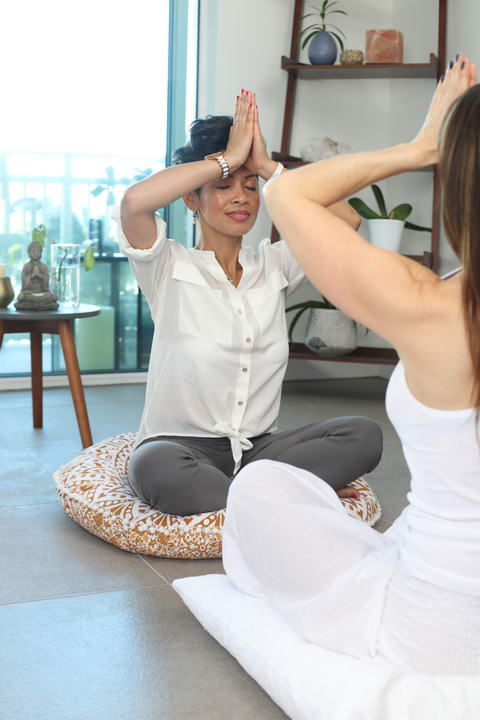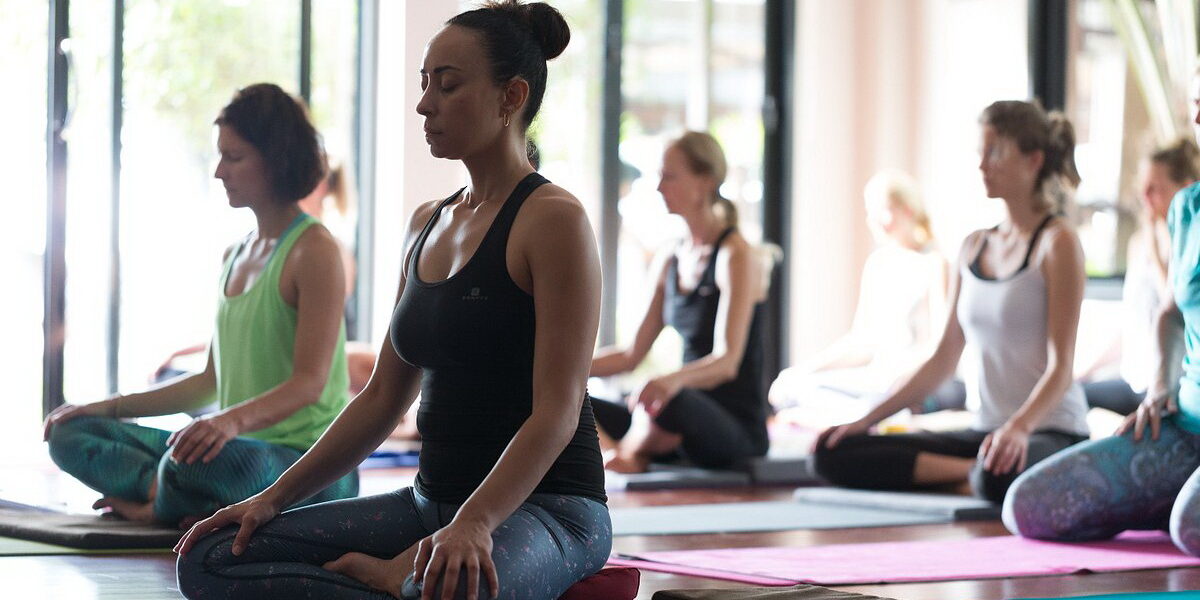Meditation for Beginners – FAQs
Meditation is a time-honored practice that offers numerous benefits for mental, emotional, and physical well-being. This FAQ article aims to address common questions about meditation, providing insights into what meditation is, how it works, and how to incorporate it into your daily life. Whether you are a beginner curious about how to start or someone looking to deepen your practice, this guide will offer practical advice and information to help you understand and make the most of meditation. From techniques and benefits to tips on getting started, we cover everything you need to know to embark on your meditation journey with confidence.
Explore Wellness Retreats
Explore Yoga Retreats with Tejomaia.com

What is Meditation?
Meditation is a practice that involves focusing the mind on a particular object, thought, or activity to train attention and awareness. It is designed to cultivate a mentally clear and emotionally calm and stable state. Through techniques such as mindfulness, guided visualization, and deep breathing, meditation helps individuals achieve a heightened sense of presence and inner peace. This ancient practice, rooted in various cultural and spiritual traditions, can be adapted to suit individual preferences and needs. Whether you aim to reduce stress, improve concentration, or enhance self-awareness, meditation offers a versatile and accessible pathway to mental and emotional well-being.
What Happens During Meditation?
During meditation, you enter a state of focused attention and mindfulness. You become more aware of your thoughts, emotions, and physical sensations, observing them without judgment. This process helps quiet the mental chatter, creating a space for inner peace and clarity. As you delve deeper, you may uncover hidden memories and emotions, leading to greater self-awareness and healing. Meditation often involves techniques like deep breathing, mantra repetition, or guided visualization, all aimed at fostering a deeper connection with your inner self and promoting overall well-being.
What Does Meditation Do?
Meditation helps quiet the mind, reduce stress, and enhance self-awareness, tranquility, and spiritual insight. By focusing inward and observing thoughts, emotions, and sensations without judgment, meditation fosters a state of calm and clarity. It can also lead to greater emotional balance, improved concentration, and a deeper connection with one’s intuition. Physically, meditation has been linked to reduced blood pressure, improved immune function, and overall better heart health. Ultimately, regular meditation practice can promote a more balanced, fulfilled, and harmonious life.

How Exactly Do You Meditate?
Meditation involves finding a quiet space, getting comfortable either sitting or lying down, and focusing on your breath. Close your eyes and take deep breaths, then let your breath return to its natural rhythm. Pay attention to the sensation of your breath entering and leaving your body. As thoughts, emotions, or sensations arise, acknowledge them without judgment and gently guide your focus back to your breath. Practice this mindfulness for a set period, typically 5 to 20 minutes. When you’re finished, gradually return your awareness to your surroundings. Experiment with different techniques and remember that there’s no right or wrong way to meditate. Regular practice is key to experiencing the benefits of meditation.
How Many Minutes Should a Beginner Meditate?
For beginners, it’s recommended to start with just a few minutes of meditation each day and gradually increase the duration as you become more comfortable. Even just five to ten minutes of meditation can be beneficial in the beginning. As you develop your practice and feel more at ease with meditation, you can gradually extend the duration to 15, 20, or even 30 minutes or more, depending on your preferences and schedule. The most important thing is to establish a regular meditation routine and listen to your body, adjusting the duration as needed to suit your individual needs and comfort level.

What to Think When Meditating?
In meditation, the goal is not necessarily to think about anything specific, but rather to cultivate a state of present moment awareness and inner stillness. Here are some approaches to consider:
- Focus on Your Breath: Concentrate on the sensation of your breath as it enters and leaves your body. Notice the rise and fall of your chest or the feeling of air passing through your nostrils.
- Practice Mindfulness: Observe any thoughts, emotions, or sensations that arise without judgment. Instead of getting caught up in them, gently acknowledge them and return your focus to your breath.
- Use a Mantra or Affirmation: Repeat a word, phrase, or affirmation silently to yourself as a way to anchor your attention and quiet the mind. This can be something like “peace,” “calm,” or “I am present.”
- Visualize a Calming Scene: Imagine yourself in a tranquil setting, such as a beach, forest, or mountaintop. Visualize the sights, sounds, and sensations of this place, allowing yourself to feel relaxed and at ease.
- Cultivate Gratitude or Compassion: Reflect on things you’re grateful for or send thoughts of love and compassion to yourself and others. This can help shift your focus away from worries or distractions and promote feelings of well-being.
Ultimately, the key is to allow your mind to settle into a state of quiet and stillness, letting go of the need to actively think or analyze. If thoughts do arise, simply acknowledge them and gently guide your attention back to your chosen point of focus, whether it’s your breath, a mantra, or a visualization.


